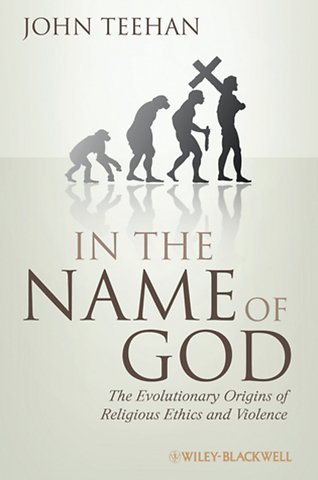In the Name of God – The Evolutionary Origins of Religious Ethics and Violence
The Evolutionary Origins of Religious Ethics and Violence
Samenvatting
Religion is one of the most powerful forces running through human history, and although often presented as a force for good, its impact is frequently violent and divisive. This provocative work brings together cutting–edge research from both evolutionary and cognitive psychology to help readers understand the psychological structure of religious morality and the origins of religious violence.
Introduces a fundamentally new approach to the analysis of religion in a style accessible to the general reader
Applies insights from evolutionary and cognitive psychology to both Judaism and Christianity, and their texts, to help understand the origins of religious violence
Argues that religious violence is grounded in the moral psychology of religion
Illustrates its controversial argument with reference to the 9/11 terrorist attacks, and the response to the attacks from both the terrorists and the President. Suggests strategies for beginning to counter the divisive aspects of religion
Discusses the role of religion and religious criticism in the contemporary world. Argues for a position sceptical of the moral authority of religion, while also critiquing the excesses of the new atheists for failing to appreciate the moral contributions of religion
Awarded Honourable Mention, 2010 Prose Awards
Specificaties
Inhoudsopgave
<p>Introduction: Evolution and Mind.</p>
<p>1. The Evolution of Morality.</p>
<p>Setting the Task.</p>
<p>The Moral Brain.</p>
<p>The First Layer: Kin Selection.</p>
<p>The Second Layer: Reciprocal Altruism.</p>
<p>A Third Layer: Indirect Reciprocity.</p>
<p>A Fourth Layer: Cultural Group Selection.</p>
<p>A Fifth Layer: The Moral Emotions.</p>
<p>Conclusion: From Moral Grammar to Moral Systems.</p>
<p>2. The Evolution of Moral Religions.</p>
<p>Setting the Task.</p>
<p>The Evolution of the Religious Mind.</p>
<p>Conceptualizing the Almighty.</p>
<p>The Moral Function of Gods.</p>
<p>3. Evolutionary Religious Ethics: Judaism.</p>
<p>Setting the Task.</p>
<p>Constructing Yahweh.</p>
<p>The Ten Commandments: An Evolutionary Interpretation.</p>
<p>Conclusion: The Evolved Law.</p>
<p>4. Evolutionary Religious Ethics: Christianity.</p>
<p>Setting the Task.</p>
<p>Constructing the Christ.</p>
<p>Setting the Boundaries: Christian and/or Jew?.</p>
<p>The Third Race: Christians as In–Group.</p>
<p>Putting on Christ: Christianity s Signals of Commitment.</p>
<p>Loving Your Neighbor and Turning the Other Cheek.</p>
<p>5. Religion, Violence, and the Evolved Mind.</p>
<p>Setting the Task.</p>
<p>Devoted to Destruction: Sanctified Violence and Judaism.</p>
<p>The Blood of the Lamb.</p>
<p>A Case Study in the Evolved Psychology of Religious Violence: 9/11.</p>
<p>6. Religion Evolving.</p>
<p>Setting the Task.</p>
<p>Varieties of Religious Expressions.</p>
<p>If There Were No God .</p>
<p>Religion, Ethics, and Violence: An Assessment.</p>
<p>Responding to Religion, Ethics, and Violence: Some Proposals.</p>
<p>Conclusions.</p>
<p>Notes.</p>
<p>Bibliography.</p>
<p>Index.</p>

